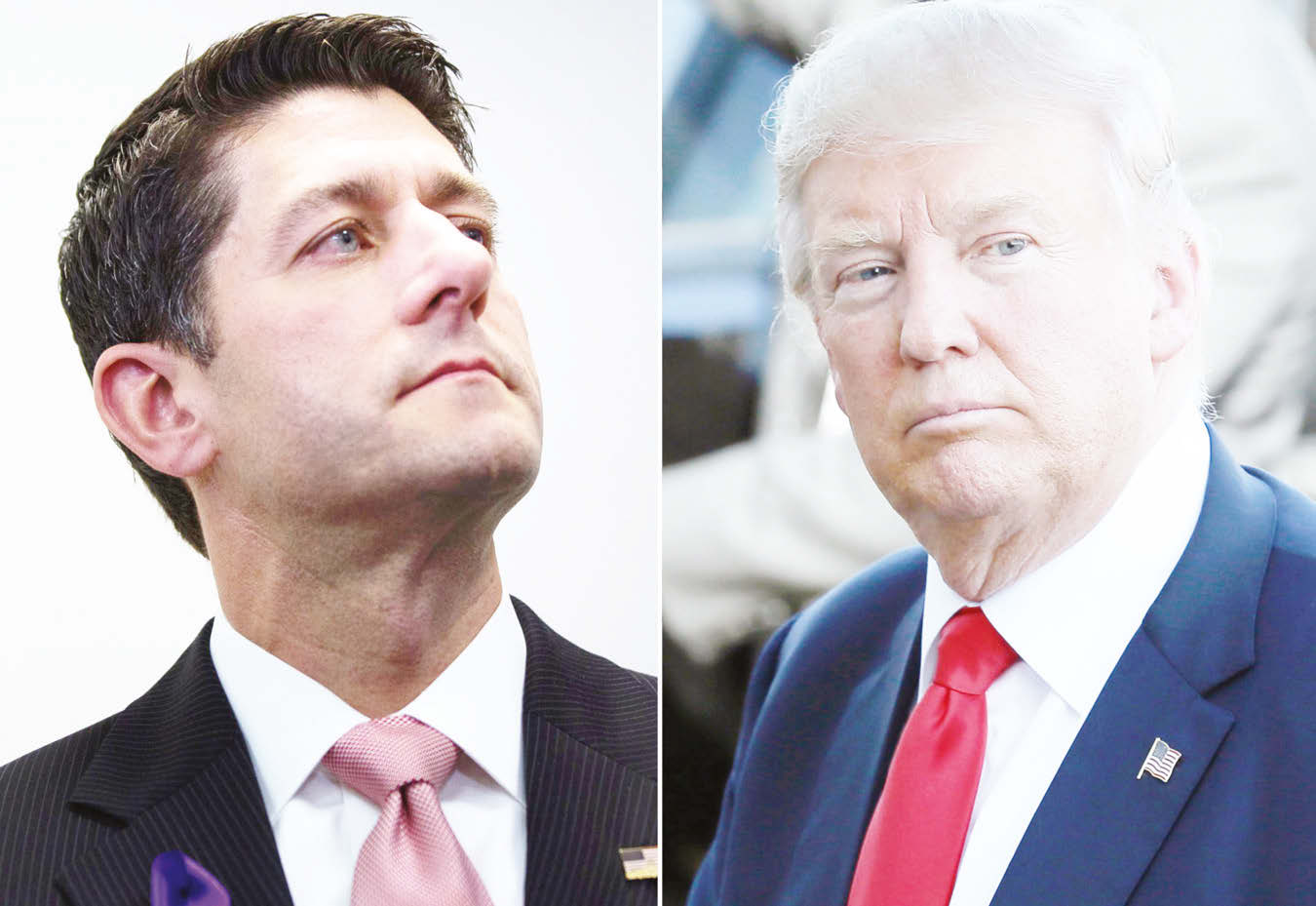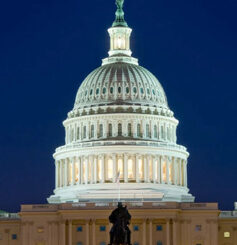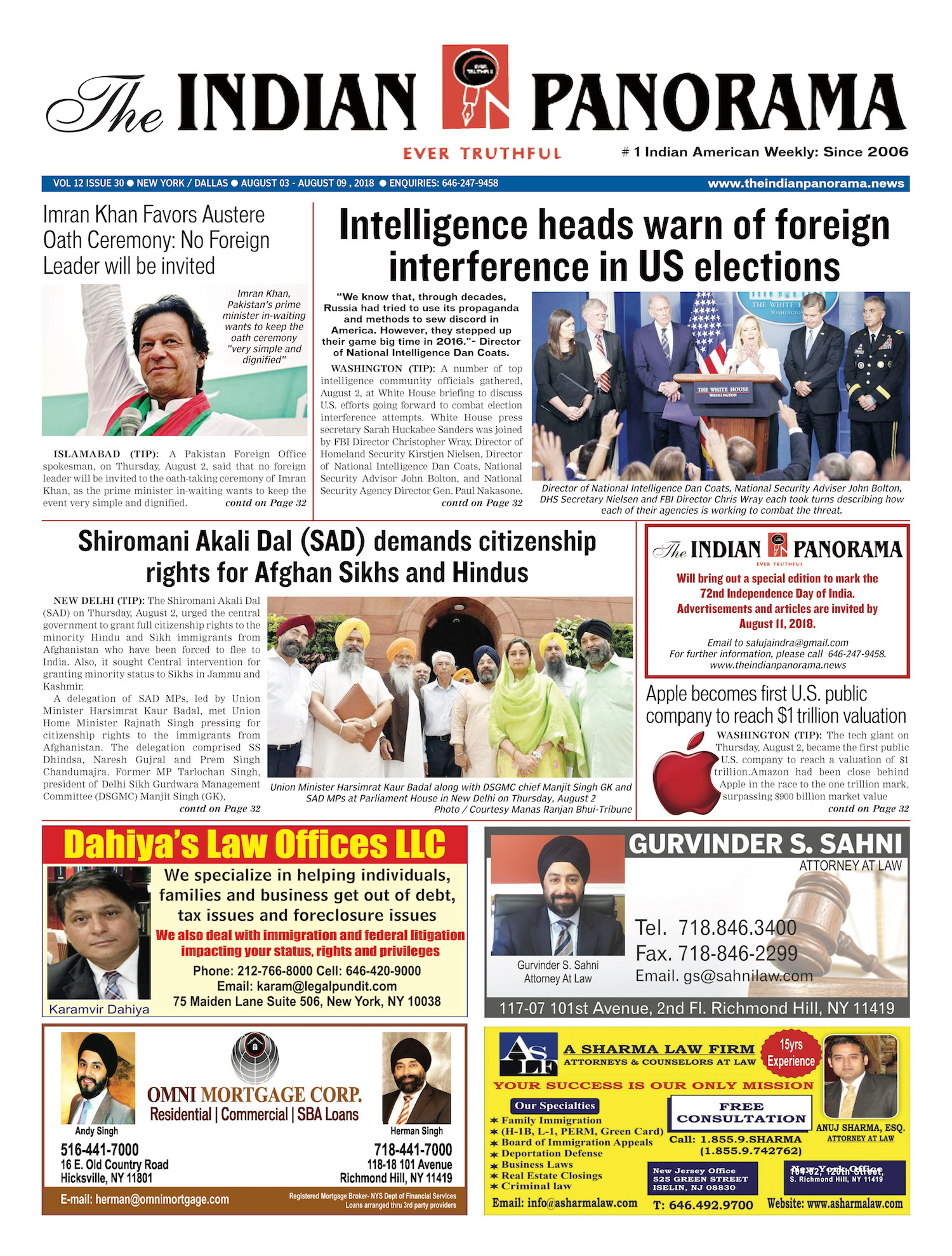
WASHINGTON (TIP): Anti-Donald Trump strategists are working behind the scenes to build the foundation for a third-party run even as the Republican Party takes steps toward unifying around the presumptive GOP candidate, says an ABC report.
A small but dedicated group of Republicans say they’ve begun to cultivate donors in hopes of mounting a viable third-party challenge to a likely Hillary Clinton-Trump showdown that some strategists say has fed broad demand for an alternative option.
“I think we’ll end up in a situation where we do see somebody who’s a conservative alternative to Trump and Mrs. Clinton come November,” Rick Wilson, a veteran Republican operative, said on ABC News’ “Powerhouse Politics” podcast.
While Texas’ state ballot deadline passed this week and others are fast approaching, Wilson downplayed ballot access hurdles, citing legal precedent for rolling back early deadlines. The real challenge, he said, is fielding the appropriate candidate.
“We recognize that finding that person who can pick up the mantle of the third party, who is also electable and compelling and has a great personal narrative, is a difficult lift,” he said. “It’s a lot harder than the ballot access question by an order of magnitude.”
Another Republican at the heart of the effort, Weekly Standard editor and ABC News Contributor Bill Kristol, has tweeted about having discussed the possibility of a third party run with Mitt Romney, Nebraska Sen. Ben Sasse, and former Oklahoma Sen. Tom Coburn. Kristol, Wilson, as well as GOP strategist Joel Searby, are heading up the effort, but it also involves donors and about a dozen other strategists.
Sasse said he is not interested in running, but has bemoaned the two likely candidates and called for a third option in an open letter, writing “WHY is that the only choice?” Similar efforts by this same group to recruit Gen. James Mattis, a retired Marine Corps General, also have not come to pass.
A source close to third party discussions told ABC News that Trump’s position as presumptive nominee explains why the third-party effort has now sprung into force.
“It’s very realistic,” the source said when asked if it was possible to mount this type of effort in May. “We already have a number of serious and capable donors ready to help and while it is very difficult to do this, it is not complicated. It’s a pretty straightforward process. There are a number of signatures needed and a legal process in each state. We are focused on the timeline and while it’s difficult, it’s not a problem that can’t be solved by hard work and resources.”
The same source said they are working on recruiting a candidate: “There are a lot of people who would like to run for president, but only a few that are truly qualified and could mount a bid of this stature this late in the game. We are focused on a very small number of candidates who would fit that profile.”
Matt Kibbe, a former head of the fiscal-conservative group FreedomWorks who led a super PAC supporting Rand Paul in the GOP presidential primary, suggested there’s broad demand for an alternative to a Clinton-Trump matchup.
“I think Libertarians, a lot of [Tea Party members], a lot of constitutional conservatives, and probably less relevantly establishment Republicans, are looking for another option as well,” said Kibbe, who has traditionally voted Republican but plans to attend the GOP, Democratic, and Libertarian conventions in search of a candidate, and is open to likely Libertarian nominee former New Mexico Gov. Gary Johnson.
Some conservative leaders have cast doubt about the chances of a realistic third-party option as more party members make peace with Trump as their nominee.
Al Cardenas, the former president of the American Conservatives Union and currently a senior partner at the lobbying firm Squire Patton Boggs, said talk of a third option has waned.
“It’s a combination of lacking a superstar willing to do so, and a sense that the party will fare better in general election, down ticket, if it’s not split at top of the ticket,” Cardenas said. Many conservatives are more focused on keeping GOP majorities in Congress, with Trump on the presidential ticket, Cardenas said.
The anti-Trump forces’ uphill climb may have grown steeper today as House Speaker Paul Ryan narrowed the gap between himself and Trump, with the two issuing a joint statement saying their meetings in Washington, D.C., signaled a “positive step” toward unifying the Republican Party.
Other conservative leaders have also warmed to Trump. Despite the GOP nominee’s inconsistencies on whether he supports raising tax rates on the wealthy, Grover Norquist, the top anti-tax activist in Washington, D.C., defended Trump in an interview with CNBC, saying he is “not at all concerned that any taxes are going up at all” with Trump as president.
But anti-Trump activist Wilson said the third-party movement can emerge and beat Clinton.
“A large number of Republicans — 55 percent of the people that have cast their vote in the Republican primary or caucus this year — have done so against Donald Trump,” he said. “Now some of those folks are going to go to him [and] settle for Trump. But that’s because right now they don’t have a conservative alternative before them who can provide them with answers on how you preserve the Republican and conservative movement without it being simply a Hillary operation.”





Be the first to comment